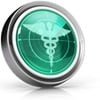The US Department of Health and Human Services Office of Inspector General (OIG), the Department of Justice (DOJ), and other federal regulators have grown increasingly concerned about the use of telehealth technologies by perpetrators of various fraud schemes. While this is in part due to the meteoric rise in use of telehealth services during the past year and the need to quickly formalize permanent policy around the technology, the federal government’s concern extends well before the COVID-19 public health emergency (PHE).
 Health Law Scan
Health Law Scan
Legal Insights and Perspectives for the Healthcare Industry
Insight from our antitrust team was recently featured in an article for the American Health Lawyers Association’s Journal of Health and Life Sciences Law.
On December 8, 2020, Judge Gerald Pappert in the US District Court for the Eastern District of Pennsylvania denied a request from the Federal Trade Commission (FTC) and Pennsylvania attorney general (AG) to preliminarily enjoin a proposed merger between Thomas Jefferson University (TJU) and Albert Einstein Healthcare Network (Einstein). The case was widely watched as the FTC sought to show that the combination of these two urban hospital systems would harm consumers.
DOJ recently announced a massive coordinated effort with other federal agencies to charge 345 defendants allegedly responsible for over $6 billion in fraud. DOJ, OIG, FBI, DEA, and various US Attorneys’ Offices in 51 federal districts teamed up to unveil charges against more than 100 doctors, nurses, and licensed clinical personnel.
In a recent LawFlash, our colleagues in the white collar practice discussed the US Department of Justice’s (DOJ’s) Criminal Division’s update to its Evaluation of Corporate Compliance Programs guidance, which is used by its prosecutors to assess the adequacy and effectiveness of corporate compliance programs in corporate criminal resolutions.